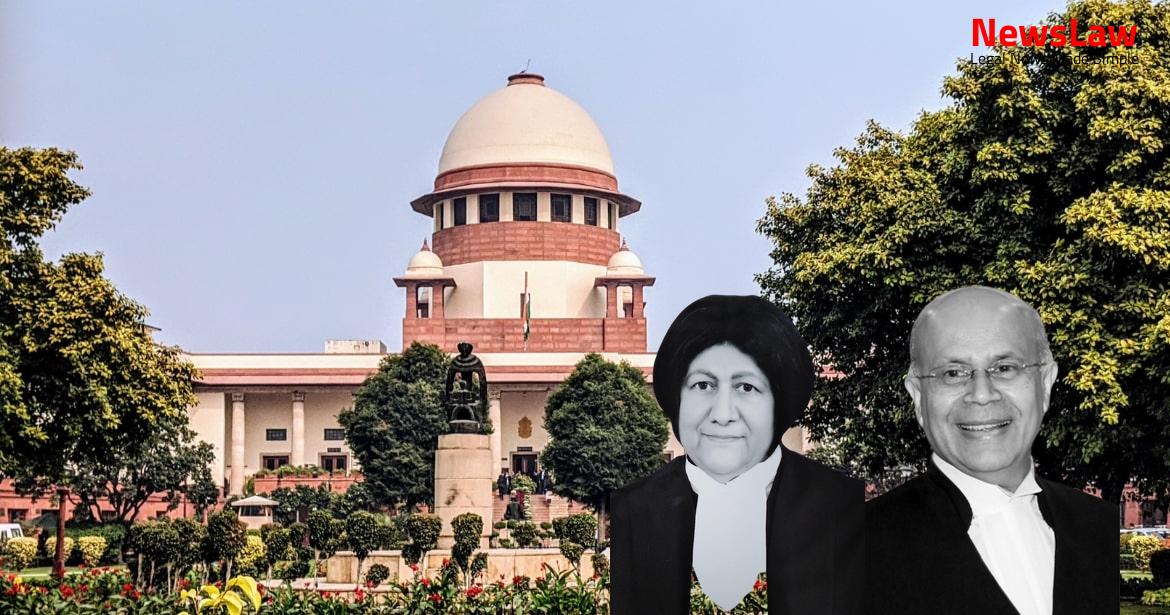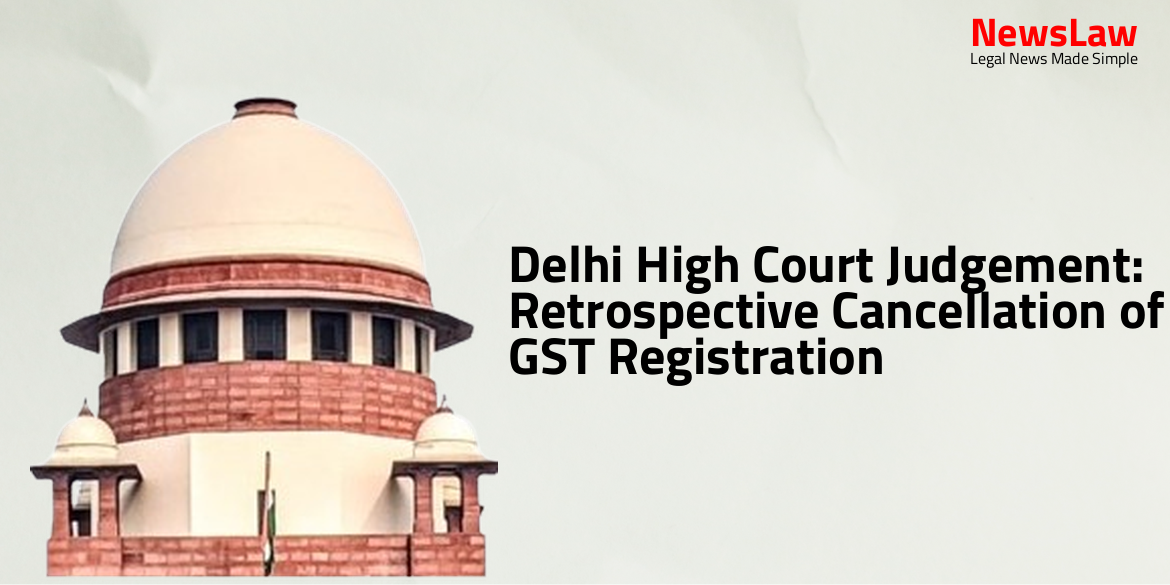In a significant legal battle, the Supreme Court of India has delivered a decisive judgment in favor of the landlady in the case involving eviction of the tenant. The dispute between the parties, Gomti Bai and Meera Devi, has finally reached its conclusion with the eviction order being upheld by the highest court of the land.
Facts
- The suit filed by the appellant-landlady seeking eviction of the respondent-tenant was dismissed as the respondent-tenant was directed to pay rent at the rate of ₹ 4,000 per month during the pendency of the appeal.
- The appellant-landlady’s grievance was against the Trial Court’s judgment considering the deposit of rent by the respondent-tenant as valid under Section 30(2) of the Act.
- Late Moti Lal died intestate on 08.02.1982, leaving behind Gomti Bai and Meera Devi as his legal heirs who became the owners of the property in question.
- The High Court had allowed the revision filed by the appellant-landlady, stating that the deposit of arrears of rent by the respondent-tenant was not valid under Section 30(2) of the 1972 Act.
- The order dated 02.05.2014 granted leave and directed the respondent-tenant to pay rent at the rate of ₹ 4,000 per month during the pendency of the appeal.
- The alleged unregistered Will staked by Pramod Kumar Pandey in the property was deemed illegal and void, declaring Gomti Bai and Meera Devi as the rightful owners of the property.
- The Trial Court decreed the suit in favor of the appellant-landlady
- The respondent-tenant was directed to handover vacant possession of the property to the appellant-landlady within one month
- The respondent-tenant was ordered to pay compensation at the rate of ₹50 per month from the date of filing of the suit
Also Read: Seniority Dispute Resolved: Junior Engineers vs. Upgraded Sectional Officers, Grade-I
Analysis
- The original respondent-tenant failed to comply with the order of this Court regarding payment of rent from March 2017 onwards.
- Legal representatives of the tenant are also not paying the rent or vacating the property.
- The tenant is in default as per the interim order passed by the Court.
- In eviction proceedings for non-payment of rent, the tenant must pay arrears and future rent regularly.
- The respondent-tenant failed to pay rent as per the Court order dated 02.05.2014 since March 2017.
- Even failure to pay rent during litigation can lead to eviction.
- Courts can consider subsequent relevant facts in rent proceedings.
Also Read: Resolution of Anomalous Situation: S.C. Bhalla v. Co-sharers 15 to 19
Decision
- The respondent-tenant failed to comply with the court order dated 02.05.2014 to pay rent at the rate of ₹4,000 per month from March 2017 onwards.
- The tenant is directed to be evicted immediately as a result of this non-compliance.
- The appeal is allowed, overturning the High Court’s judgment.
- The landlady has the right to recover the arrears of rent from the tenant for the default period through appropriate legal proceedings.
Also Read: Case of Establishing Matrimonial Relationship: Padminibai v. Defendant No. 1
Case Title: MEERA DEVI (D) THR. LR. Vs. DINESH CHANDRA JOSHI (D) THR. LRS (2024 INSC 725)
Case Number: C.A. No.-005577-005577 – 2014



